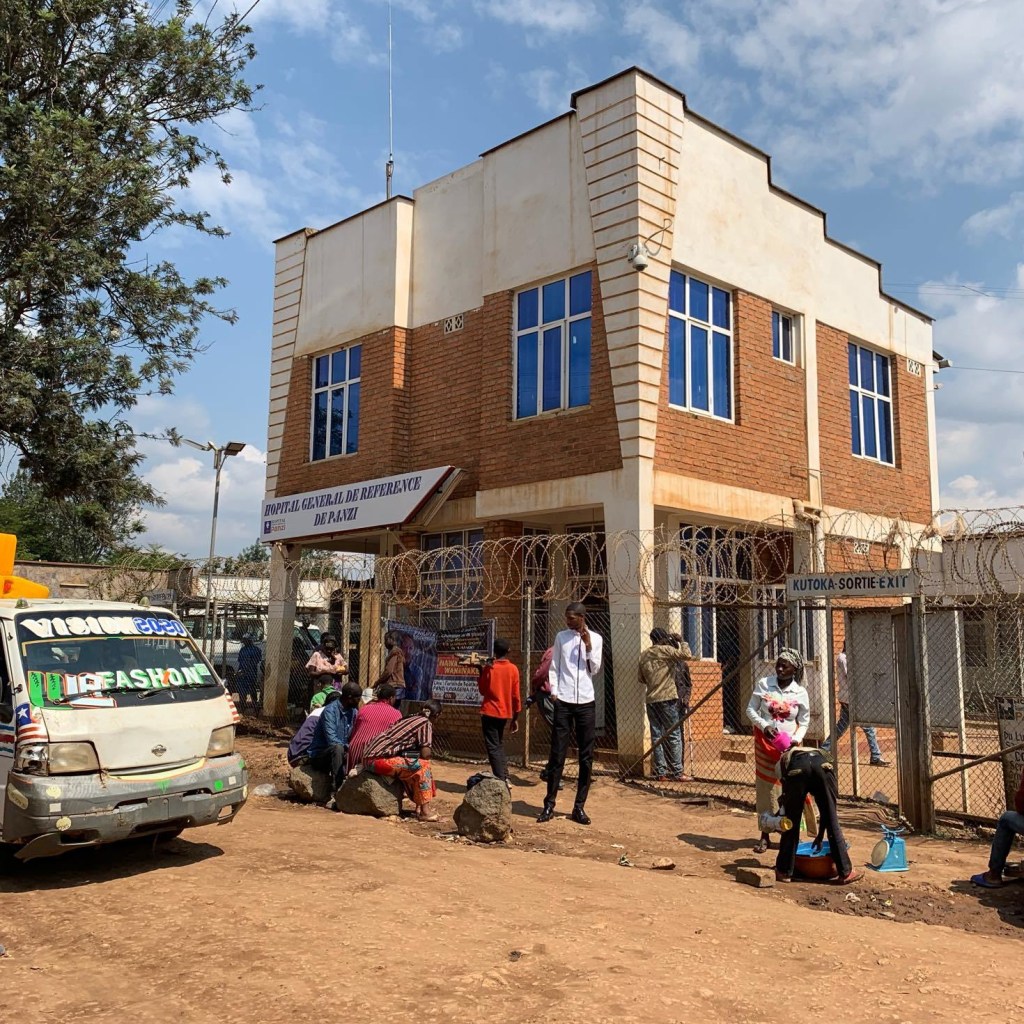By Georgina Ramsay
This piece is part of APLA’s Speaking Justice to Power Series: On the Gender and the Sexual Politics of Contemporary Patriarchal Ethnonationalist Authoritarianism, edited by María Lis Baiocchi.

“In much of Africa, ‘wife’ is a four-letter word,” writes Oyèrónkẹ́ Oyèwùmí (2000: 1096, emphasis in original). “[Instead] Mother is the preferred and cherished self-identity of many African women.” Notwithstanding all of the important caveats about avoiding generalizations regarding the varied lives and perspectives of women in and from continental Africa, the point made by Oyèwùmí above is an important one to consider when discussing formations of patriarchy and ethnonationalism in African contexts. Put simply, a term like “patriarchy” as it is understood in the West does not map neatly onto the experiences of African women, a point similarly made in different ethnographic contexts by Saba Mahmood (2011, 2001) and Lila Abu-Lughod (2015). From Mahmood and Abu-Lughod’s work, we can see modes of agency in patriarchal contexts “not simply as a synonym for resistance to relations of domination, but as a capacity for action that specific relations of subordination create and enable,” without essentializing what it means to resist patriarchal power to the modes of resistance assumed by Western liberal feminism (Mahmood 2001: 210). For Congolese women I have worked with, motherhood is one such form of agency. Being and becoming a mother is a position of feminine power that could be read from a Western frame as reinforcing patriarchy, yet it is, for them, their most concrete and satisfying basis of agency and self.
Consequently, it is impossible to understand how patriarchy—or, more broadly termed, the domination of men—operates in African contexts without first paying attention to these specific formations of gender, power, and agency. When we recognize that motherhood is a central source of agency for African women, we are forced to think more broadly about patriarchy beyond the woman-man dyad. Instead, we must return to the etymological origins of the term, which turn our attention to the “pater”—the “father.” That is, patriarchy as the domination of men over family, meaning women and children. Basically, formations of patriarchy and patriarchal ethnonationalism in Africa not only look like control over the lives of women, but also the lives of children.
In the Democratic Republic of the Congo (DRC), children have long been the target of patriarchal ethnonationalist power struggles. The acts of violence enacted during the devastating wars that took place between 1997-2003 in the country often focused, both physically and symbolically, on children and reproduction. Loosely targeting people considered to be of a different ethnic group or, more commonly, allied with a different political group, children were often a concerted focus of violence from all sides of the political spectrum: killing children is a way to annihilate the future potential of an enemy. In addition, acts of sexual violence were commonly perpetrated in ways that sought to symbolically invert the reproductive potentiality and power of women. These are acts of patriarchal ethnonationalism that intend not only to dominate women, but more specifically to reduce the reproductive potentiality of women through power over the lives (and deaths) of children.
The International Rescue Committee estimates that 5.4 million people died as a result of these wars (Coghlan et al. 2007). While many deaths included in that estimate were the result of direct acts of violence, many more were the result of war-related disease and malnutrition. In other cases, children became incorporated into militia groups. To this day, young people in the east of the DRC continue to join militia groups because it is seen as a livelihood strategy. These are forms of structural violence—that is, processes that prevent people from accessing essential, life-saving resources—that disproportionately affect children.
Even though spectacular acts of violence have come to characterize the DRC and its wars in popular imaginaries, it is really these everyday forms of structural violence that have developed into stable formations of ethnonationalist power. Consequently, it would be accurate to say that, in the contemporary period, the Congolese state has abandoned its children in the east. In fact, one could say that “childhood” itself has been abandoned in the region. When I conducted fieldwork in Bukavu, a city in the east of the DRC over the past summer, I talked with many people about the ongoing impacts of twenty years of abandonment on a generation of Congolese people. “It is deterioration …” One woman told me. “… The youth are destroyed.” With jobs and schooling so difficult to access in the region, survival often means doing things that are corrupt, dangerous, ingenious—often, all at the same time. Paralleling how young people might speak about the incentives to join militia groups, many women—mothers—I spoke to told me about plans to go and work in any number of the mining operations that take place in the eastern DRC. Weighing up the security risk of moving out to the remote mining regions, one woman told me, “If our children could go digging gold, things would be good.” Congolese ethnonationalist power regimes no longer rely on direct violence to subdue groups who are considered to be antagonistic to state regimes. Structural violence, especially that which exposes children to insecurity and danger, perpetuates that.
Such instability reverberates through and constricts the kinds of decisions women make about the reproductive potentiality of their bodies, manifesting as a kind of reproductive control that does not need explicit infrastructures of birth control for enforcement. When I asked women about the kind of futures they see for themselves and their family, I was met with cynicism. “My future…” one woman responded, “my future is the future of this country.” Such a statement is damning, given that the future of the DRC is generally thought of by locals and international commentators alike as fraught, in the very least; if not outright “empty,” as one woman told me.
The paradox is that while the future of the DRC is conceived of as empty, the country itself is not. It is one of the most resource-rich nations on the planet, abundant with minerals like gold, copper, diamonds, cobalt, and coltan. But, like power, wealth is concentrated here. The daylight robbery of the extractive industries in the DRC is enabled through the authoritarian politics that ensure control over resources is concentrated in the hands of an elite group of political actors. Moreover, these authoritarian politics routinely—purposefully—go unchecked by international commentators. Last year, following what many consider to be a corrupt election and two years of constitutional crisis, a Congolese friend of mine pointed out the irony that the US and other states were quick to intervene in the presidential crisis occurring somewhat simultaneously in Venezuela. “When it is Congo’s presidential crisis? No, no one cares. That is business.”
Partly, the cooptation of global indifference towards the DRC and its politics has been made possible by the ready availability of racist narratives of Africa—and the Congo in particular—as a “Heart of Darkness,” a place and time that exists beyond the reach of progress. As Achille Mbembe (2001: 4) writes, such naturalized Othering of African states produces fatalistic narratives, in which “The idea of progress is said to disintegrate in such societies; should change occur—rare indeed—it would, as of necessity, follow a disordered trajectory and fortuitous path ending only in undifferentiated chaos.” Given the global reliance on minerals from the DRC, the lack of attention to Congolese politics is not simply damning; it clearly has a productive function, treating authoritarianism in African states as “business as usual” while overlooking the complicity of Western states and international companies who invest in, and rely on, this business.
Local people in the DRC make sense of these global webs of inequality by focusing on the ways that these processes impact on the most tangible, practical modalities of raising children. “In your country,” one woman told me, “your children eat five times a day. In our country, children eat once a day. Maybe.”
If we take seriously these narratives of struggle through the lens of motherhood, we can see that the social, political, and economic struggles of the DRC are not simply producing poverty, but destabilizing women’s power. In this way, structural violence—and the authoritarian webs of power that make these routinized—can be thought of here as a distinctly gendered regime of patriarchal ethnonationalist domination, enacted with global complicity.

Georgina Ramsay is Assistant Professor in the Department of Anthropology at the University of Delaware and Honorary Lecturer in the Department of Anthropology at Macquarie University in Australia. Her work focuses on displacement, and she has conducted fieldwork with internally displaced people in the DR Congo, refugees in Australia, and people who are homeless in the US. Her book, Impossible Refuge: The Control and Constraint of Refugee Futures, was published in 2018. She has also published in journals like Public Culture, Critique of Anthropology, and Anthropological Theory, among others.
References
Abu-Lughod, L. 2008. Writing Women’s Worlds: Bedouin Stories. 15th anniversary edition. Berkeley: University of California Press.
Coghlan, B., Ngoy, P., Mulumba, F., Hardy, C.,Nkamgang Bemmo, V., Stewart, T.,Lewis, J. and Brennan, R. 2007. Mortality in the Democratic Republic of Congo: An Ongoing Crisis. International Rescue Committee, report available at: https://www.rescue.org/report/mortality-democratic-republic-congo-ongoing-crisis, accessed 12 April 2020.
Mahmood, S. 2005. Politics of Piety: The Islamic Revival and the Feminist Subject. Princeton: Princeton University Press.
Mahmood, S. 2001. Feminist Theory, Embodiment, and the Docile Agent: Some Reflections on the Egyptian Islamic Revival. Cultural Anthropology 16(2): 202-236.
Mbembe, A. 2001. On the Postcolony. Berkeley: University of California Press.
Oyèwùmí, O. 2000. Family Bonds/Conceptual Binds: African Notes on Feminist Epistemologies. Signs: Journal of Women in Culture and Society 25(4): 1093-1098.
